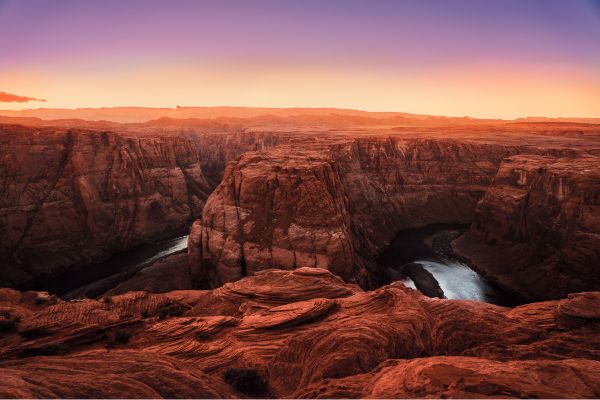
- Details
- By Native News Online Staff
In a letter on Tuesday, May 30, Arizona Governor Katie Hobbs urged President Biden to use the Antiquities Act to designate the tribally proposed Baaj Nwaavjo I’tah Kukveni Grand Canyon National Monument.
Arizona is known as “The Grand Canyon State,” and the use of the Antiquities Act — established in 1906 to preserve archeological and historical sites on public lands — would safeguard the canyon’s watershed, continue to support strong economic growth in communities across the state, and preserve important cultural land.
Hobbes support comes after Secretary of the Interior Deb Haaland (Laguna Pueblo) visited the Grand Canyon on May 20 to meet with the Grand Canyon Tribal Coalition about the proposed monument.
The Grand Canyon region is a significant contributor to the state's economy. According to a recent National Parks Service report, in 2021 4.5 million people visited the National Park and spent an estimated $710 million in park gateway regions alone, which has supported over 9,300 jobs.
“The Grand Canyon region is known as one of the Seven Natural Wonders of the World, but known for much more in the state of Arizona,” Hobbs said in her statement. “It’s a culturally sacred place, stewarded by Indigenous Peoples for centuries. Today, I add my voice to those asking President Biden to use the Antiquities Act authority to safeguard this irreplaceable landscape.”
As well, Hobbs wrote that the Arizona Game and Fish Department will retain its existing authority related to the management, control, and regulation of fish and wildlife in the area “so that this authority is clearly delineated prior to the years-long formation of a monument management plan."
More Stories Like This
Trump signs law that revokes some limits on drilling in Alaska’s National Petroleum ReserveSouthern Sierra Miwuk Nation Gets 900-Acres ofLand Back
Chilkat Indian Village Tells New Palmer Mine Owners They Are “Not Welcome” in Chilkat Valley
Tribes, Coastal Group Ask Army Corps to Revoke Permit for Texas Export Terminal
Michigan Tribes Tell Supreme Court: Don’t Bail Out Enbridge
Help us defend tribal sovereignty.
At Native News Online, our mission is rooted in telling the stories that strengthen sovereignty and uplift Indigenous voices — not just at year’s end, but every single day.
Because of your generosity last year, we were able to keep our reporters on the ground in tribal communities, at national gatherings and in the halls of Congress — covering the issues that matter most to Indian Country: sovereignty, culture, education, health and economic opportunity.
That support sustained us through a tough year in 2025. Now, as we look to the year ahead, we need your help right now to ensure warrior journalism remains strong — reporting that defends tribal sovereignty, amplifies Native truth, and holds power accountable.
 The stakes couldn't be higher. Your support keeps Native voices heard, Native stories told and Native sovereignty defended.
The stakes couldn't be higher. Your support keeps Native voices heard, Native stories told and Native sovereignty defended.
Stand with Warrior Journalism today.
Levi Rickert (Potawatomi), Editor & Publisher


